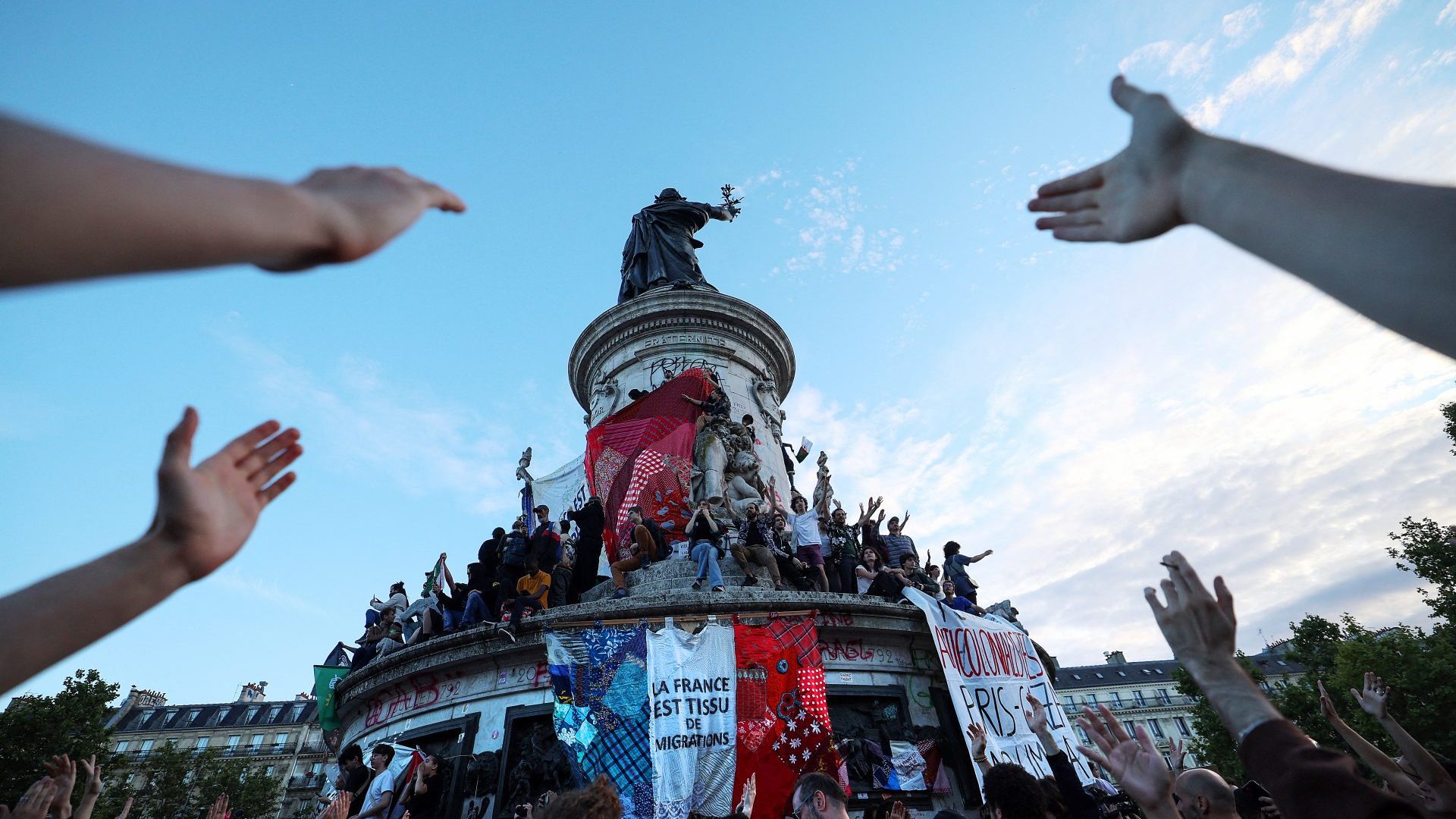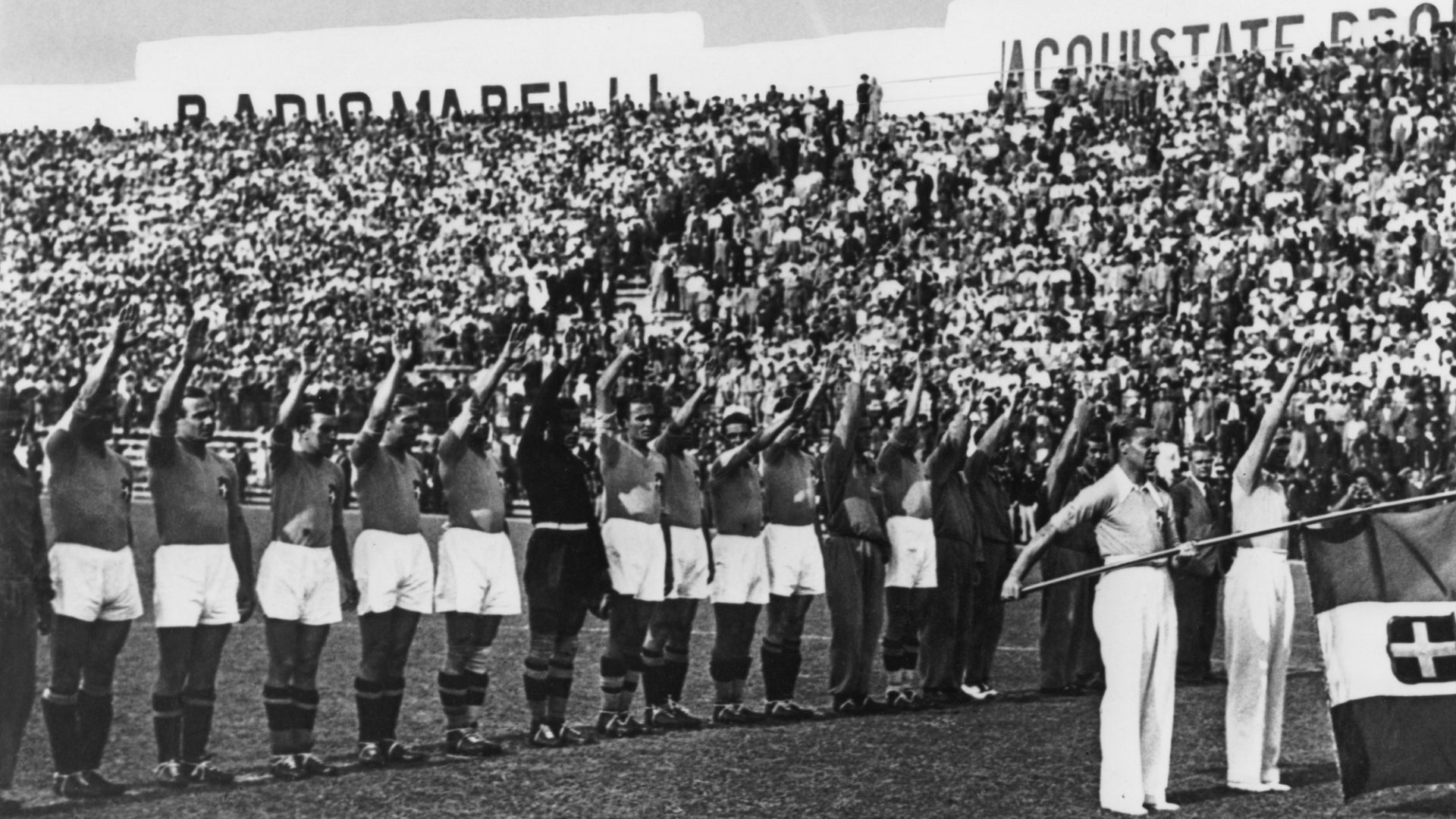Relief and anxiety. It’s rare to experience two such opposing feelings in equal measure, especially at the end of a national vote.
Yet these are the two words that were running through my head on Sunday evening when I heard the results of the general election in France. At least one thing is clear: the French people do not want the extreme right in government. The so-called Republican Front worked when nobody expected it to. That is a huge relief.
First of all, we were all flabbergasted. We could hardly believe the first estimates – it seemed incredible that the left wing alliance, united under the name of the “New Popular Front”, had come out on top with 182 seats out of 577 and that the Rassemblement National (RN) only finished in third place with 143 seats. That put the RN behind Ensemble, the presidential movement, which won 163 seats.
After the first round of elections, this is the opposite of the expected order. RN came first and looked set to win an absolute majority. Jordan Bardella, the 28-year-old star of the extreme right wing, was being talked about as Emmanuel Macron’s future prime minister.
Despite Marine Le Pen’s efforts to “de-demonise” the party that was founded by her father under the name the National Front, and despite the strategy used by Le Pen and her acolytes to dress soberly and speak politely, the rebranding was not enough to make people forget who they really are.
The RN is not an ordinary political party. It has never rejected the history from which it emerged: the xenophobic ideology and racism of the Vichy regime, and the militant extreme nationalism that was thrown up by the catastrophic collapse of French Algeria. The true nature of RN has been unmasked by many of the candidates put forward by the party who, with a poor grasp of the “dress sober and speak politely” strategy, were unable to restrain their racist, antisemitic, conspiracy theories. It became clear that Le Pen’s party was riddled with lunatics and outright fascists.
Voters ranked the dangers in a hierarchy and prioritised the extreme right, which they blocked. In two- or three-way constituency races involving the RN, they voted for the lesser of their enemies. The unsuspected vote shifts we saw benefited the New Popular Front.
Thanks to the mobilisation of the Republican Front, and a heavy dose of tactical voting, France avoided disaster. The campaign alone and the prospect of a far right victory has already had a troubling effect on the country, unleashing a slew of racist rhetoric that has soured the political atmosphere. It was enough to make clear the fate that France had only just managed to avoid.
A Rassemblement National government led by Bardella would have turned France into an illiberal democracy, in the hands of a party that has been more than complacent towards Russian president Vladimir Putin, and an outspoken admirer of both Donald Trump and his former adviser, Steve Bannon, who has just begun four months in prison for refusing to co-operate with the January 6 inquiry.
Bardella would have destabilised the European Union at the most perilous moment in its history, when Putin is waging war on the continent. It would have broken the momentum of support for Ukraine.
That France so narrowly avoided that fate is almost unbelievable – and that danger has not gone away. Le Pen and her party will not simply vanish.
At 8pm on Sunday July 7, the victory of the Republican Front was resounding. Half of France was triumphant, particularly in Paris and the major cities.
Then at 8.01pm, the trouble began. The first politician to speak, in order to mark his territory and assert his authority over the left as a whole, was Jean-Luc Mélenchon, founder of La France Insoumise and one of the most divisive figures in French politics.
The former presidential candidate hailed the victory of the New Popular Front, which came out on top in all three blocs, and of La France Insoumise, which came out on top in the leftist bloc. He forgot that neither the bloc nor his party had won a majority.
The man who, in 2022, criticised Macron for daring to govern after winning only 250 seats out of 577 seemed to be suggesting that with 182 seats, the New Popular Front was entitled to absolute power.
Throughout his 10-minute speech, Mélenchon insisted that the New Popular Front was now “ready to govern”, and made a clear appeal to Macron: “The president of the Republic has the power, the president of the Republic has the duty to call on the New Popular Front to govern. It is ready to do so. The New Popular Front will apply its programme, not just its programme but its entire programme.”
A few minutes later, social democrat MEP Raphaël Glucksmann, who despite his profound differences with La France Insoumise had backed the New Popular Front, gave a speech saying the opposite. He called for compromise, consensus and coalitions, in the typical French parliamentary style. He pledged that Mélenchon would never become prime minister.
Here ends the relief. Here begins the anxiety. There were no winners in this election. We know who lost, but we don’t know who won.
The first loser is Macron. His centrist alliance may not have disappeared, but he has lost his dominant position. His extravagant gamble of calling an election at the worst possible moment has resulted in a National Assembly far worse in its political character than the previous one.
The second loser is the Rassemblement National. It may have doubled its seats, but it did not win the landslide majority that was within its grasp, and it seems the French voters will do anything they can to block Le Pen from power. For now.
But we still don’t know who won. The New Popular Front, made up of a motley alliance of left wing parties, certainly came out on top, but it has no leader, no majority and no common objectives. As when they voted for Jacques Chirac in 2002 against Jean-Marie Le Pen, or twice for Macron against Marine Le Pen in 2017 and 2022, the French did not vote for the Popular Front programme, or for a Popular Front prime minister, but against the Rassemblement National.
The relief felt by a majority of French people is a delusion. The National Assembly has no constructive possible majority. It is ungovernable, divided into three almost equal blocs that are more hostile to each other than ever before, none of which is in a position to impose itself. This is the first time such a situation has arisen.
Macron had called the election to obtain, he said, “clarification”. What he got was the opposite: complexity in a destabilised country – two weeks before the Olympics, when France will welcome the whole world.
The president will no doubt try to argue that he won his election gamble by proving the revival of the Republican Front. He has not won – he has lost his political power. The centre of gravity has shifted from the Elysée Palace to the National Assembly.
At 11.30am on Monday July 8, Gabriel Attal was in the office of the president of the Republic to hand in his resignation. Macron refused to accept it. In this vast shambles, he asked Attal to remain at Matignon “for the time being”, in order to “ensure the stability of the country”.
Mélenchon has said that he sees himself governing “from this summer”, and that he will start by repealing Macron’s pension reforms. Once again, he is forgetting that the New Popular Front’s narrow lead does not give him an absolute majority.
Applying “his programme, nothing but his programme, his whole programme”, as he put it, would mean lowering the retirement age, raising the minimum wage and not respecting the European budget stability pact. In other words, he will trample across the red lines of the centre right bloc.
France is one of the most indebted countries in the EU. Debt repayment is one of the main costs borne by taxpayers. The threat of a financial crisis looms large. French civil servants are paid thanks to loans granted by the financial markets. Will that ability to raise funds from investors continue peacefully without the prospect of stable government?
The defeated France is still there. More than 10 million people voted for Le Pen’s party. There can be no denying it – in terms of the number of votes, it is the leading party in France.
France is on borrowed time. The defeat of the far right by a cobbled-together opposition will feed the resentment of RN voters who feel as if they’ve been cheated by a cosy, elite backroom deal. If the “Republican Front” parties fail to build constructive coalitions, they will be proving Le Pen right, after she declared on Sunday evening: “The tide continues to rise… Our victory is only postponed.”
We have avoided the worst, but the price is chaos.




